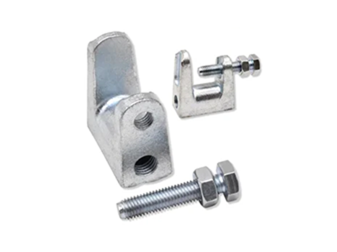11월 . 10, 2024 22:42 Back to list
Various Types of Flat Washers and Their Applications in Different Industries
Understanding Flat Washer Types A Comprehensive Guide
Flat washers are commonly used components in various engineering and construction applications. They serve a crucial role in distributing load and reducing friction, which helps to prevent damage to surfaces and increases the stability of fastened connections. In this article, we will explore the different types of flat washers, their applications, and considerations for their use.
What is a Flat Washer?
A flat washer is a disk-shaped component, typically made of metal or plastic, with a hole in the center. The primary function of a flat washer is to distribute the load of a threaded fastener, such as a bolt or nut. By increasing the surface area under the fastener, flat washers help to reduce the pressure on the surface being fastened and minimize the risk of damage. They can also help in preventing loosening due to vibration.
Types of Flat Washers
1. Standard Flat Washers These are the most basic type of flat washers and are widely used in various applications. They come in different sizes and materials, including steel, stainless steel, and plastic. Standard flat washers are ideal for applications where load distribution is necessary.
2. Lock Washers Lock washers are designed to prevent loosening of the fastener due to vibration or movement. They come in various shapes, such as split lock washers, tooth lock washers, and wave lock washers. Each type has a unique design that helps to create friction and grip to secure the fastener.
3. Belleville Washers Also known as a disc spring washer, Belleville washers have a conical shape. They are used in applications requiring a specific preload or where there is a need to compensate for the settling of components over time. This type of washer is particularly useful in automotive and machinery applications.
4. Fender Washers Fender washers are larger than standard flat washers and have a wider outer diameter. They are used when a larger surface area is required to distribute the load of a fastener. Fender washers are commonly used in outdoor applications, such as securing metal or plywood panels.
5. Oversized Washers These washers have a hole that is larger than the fastener size, which allows for a more significant load distribution. Oversized washers are particularly useful in applications where the material is soft or vulnerable to deformation.
flat washer types

6. Specialty Washers There are also specialty flat washers designed for specific applications, such as insulating washers for electrical applications and sealing washers that help prevent leaks in plumbing. These washers come in various materials, including rubber and nylon, to suit particular needs.
Choosing the Right Flat Washer
When selecting a flat washer for your project, consider the following factors
- Material Choose a material that matches the environment in which the washer will be used. For example, stainless steel washers are suitable for outdoor or corrosive environments, while plastic washers are often used in electrical applications where insulation is necessary.
- Load Requirements Consider the load that the washer needs to support. For heavy loads, opting for fender or oversized washers may be ideal to provide adequate support.
- Vibration Resistance If the application involves movement or vibration, using lock washers may be necessary to ensure that the fastener remains secure.
- Size and Fit Ensure that the washer fits properly with the fastener being used. The inside diameter should match the bolt or screw size, while the outside diameter should be sufficient to distribute the load effectively.
Conclusion
Flat washers may seem like simple components, but they play a vital role in the integrity and longevity of mechanical assemblies. Understanding the different types of flat washers and their specific applications can help in selecting the right washer for your needs. Whether you’re working on a DIY project at home or in a professional engineering environment, using the appropriate flat washer can enhance the reliability of your connections and ensure success in your endeavors. Always consider the material, load requirements, and the potential for vibration to make an informed choice.


